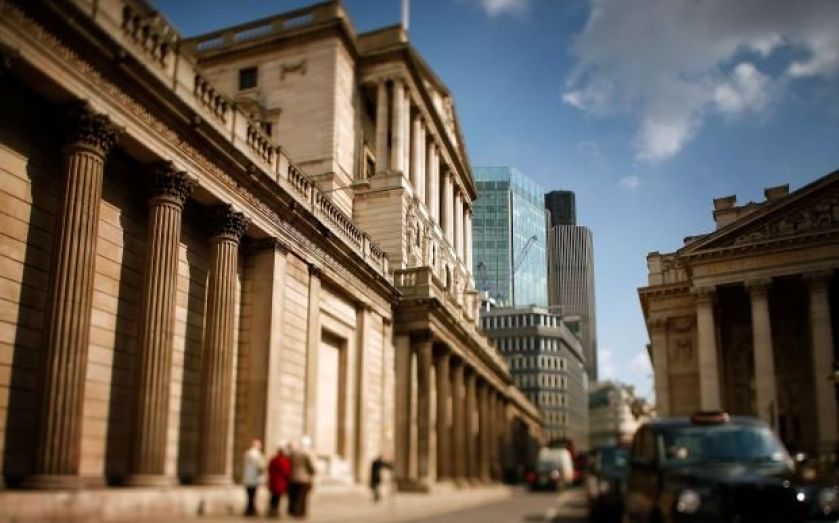Bank of England MPC minutes: Policymakers defy expectations to stay firm on interest rate hike vote

The Bank of England's monetary policy committee (MPC) voted 7-2 against raising rates in November, unchanged from last month's vote – despite speculation there might be a stronger vote in favour of keeping rates low.
However, the minutes did reveal that there was a "material spread of views" amongst policy makers over the future outlook.
MPC members said that there was now more evidence that the UK economy could begin to slow:
For some time, the Committee had been anticipating that UK output growth would slow to around, or slightly above, historical average rates. There was now more evidence that this had begun to occur in the second half of the year.
Given the pace at which spare capacity appeared to have been eroded over the past year and the possibility that productivity growth would remain weak, there was a risk that any remaining slack might soon be exhausted, causing inflationary pressures to build.
In the bank's quarterly inflation report it had said that it expects inflation to fall below one per cent in the next six months, primarily due to tumbling oil prices.
Yesterday, analysts had dismissed a small rise in the rate of inflation as an anomaly. It rose 0.1 per cent to 1.3 per cent in October, following a surprise fall in September, according to data from the Office of National Statistics.
Ian McCafferty and Martin Weale voted in favour of a 0.25 per cent rise in rates. This is the fourth time they have voted for a rate hike this year.
Sterling jumped following the release.
While the minutes were less dovish than expected, analyst expectations for a rate hike were largely unchanged.
Howard Archer, chief UK and European economist at IHS Global Insight said:
While the November MPC minutes are unlikely to hugely dilute increased expectations that the Bank of England will not be raising interest rates before late-2015, they suggest that a move around August is still possible.
We currently forecast the first interest rate hike from 0.50% to 0.75% to come next August, but there is clearly a very real possibility that the Bank of England will delay acting until the fourth quarter of 2015 or even early 2016.
While deflation does not appear to be a serious risk in the UK (unlike in the Eurozone), the very real prospect that consumer price inflation could remain well below its 2.0% target for a prolonged period could make the Bank of England increasingly wary about raising interest rates at all in 2015, even if growth holds up well.
A triple whammy of static wages, low inflation and global growth fears means that the Bank of England can leave interest rates at rock bottom for some time. I would expect a rate rise to come well after the next General Election in May next year.